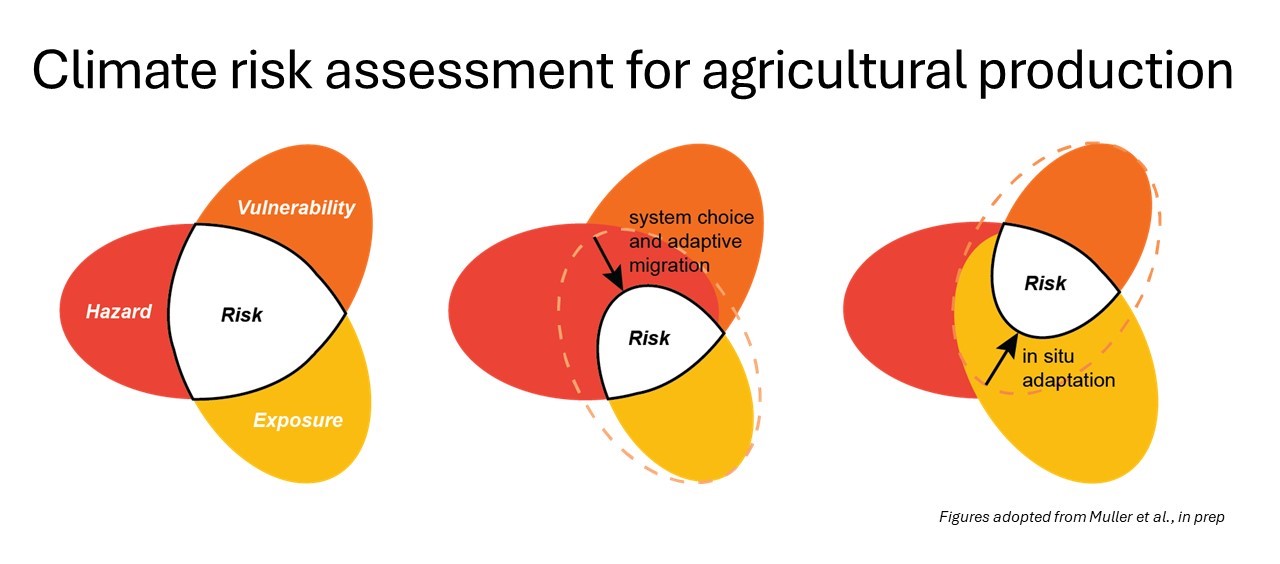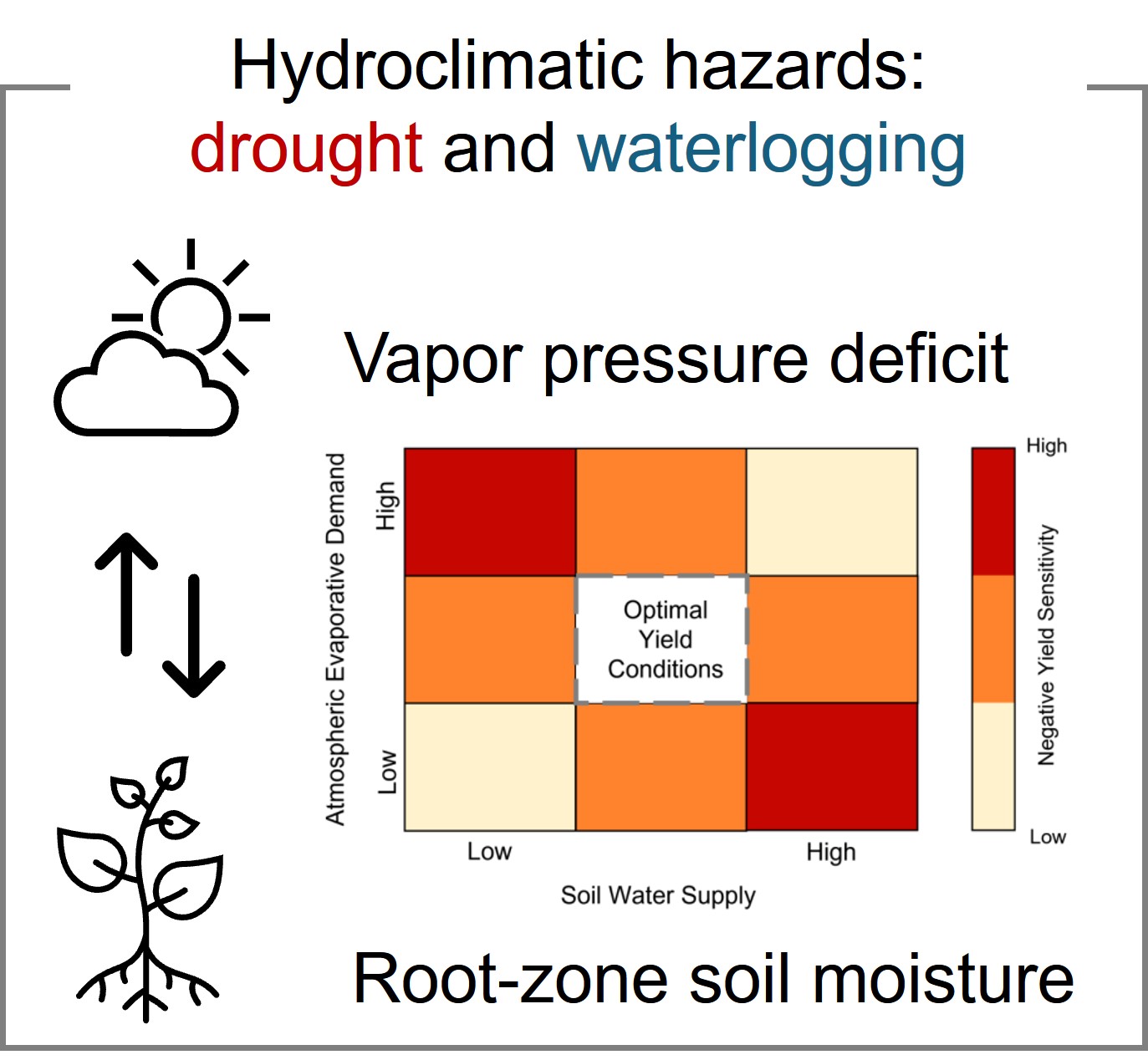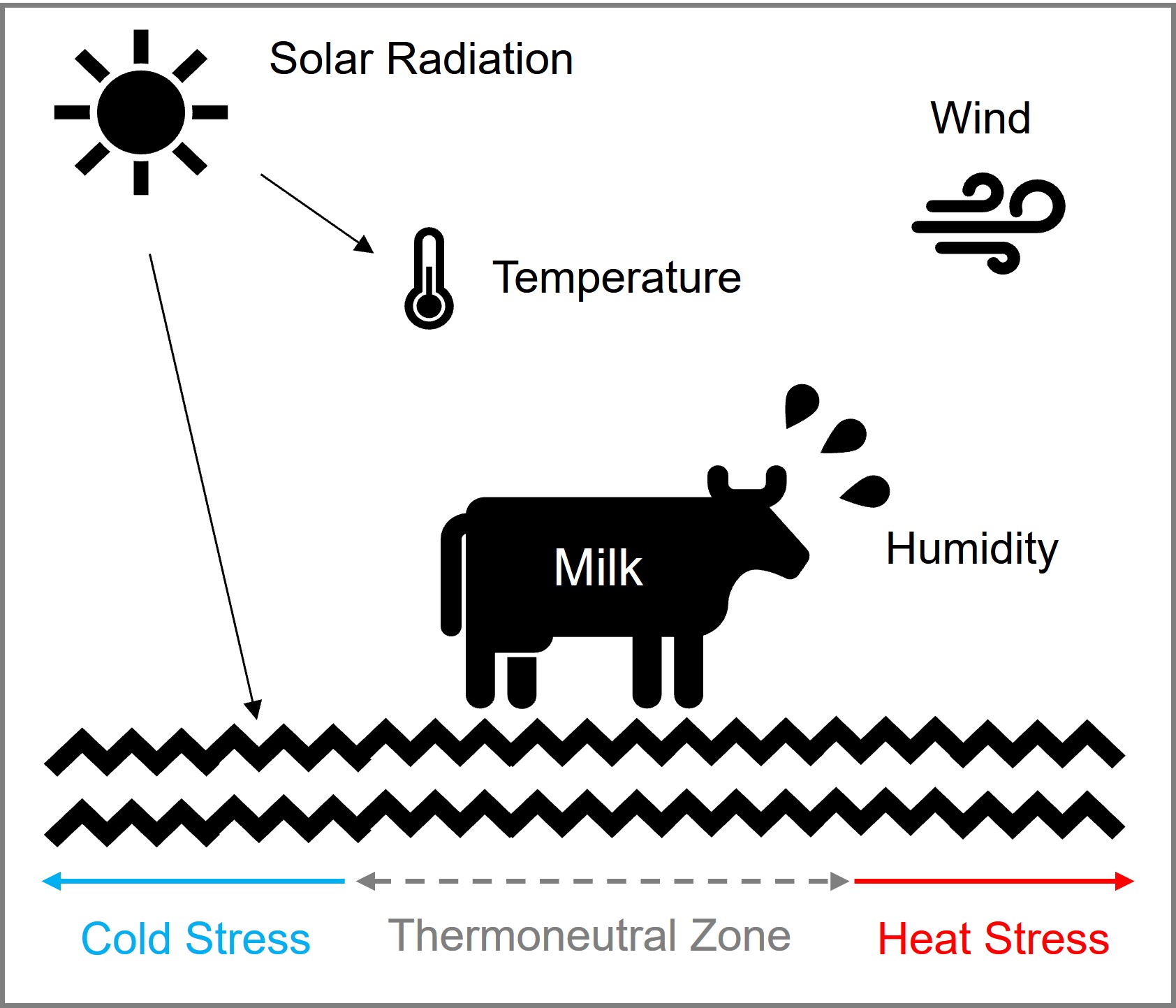Eunkyoung (Kyoung) Choi
👩💻 I’m now moved to Boston University and working as a postdoc researcher in Elizabeth Barnes’s group. During my PhD, I focused on historical climate risks to agricultural production. I am now exploring predictive approaches to assess weather and climate risks in agricultural systems.
🔍 My research aims to strengthen the use of climate information to improve climate risk assessment for agriculture and to support global food security.
I am particularly interested in addressing the following questions using econometric and machine learning approaches:
- How have, and how will, extreme climate events affect agricultural production in the context of hazards, exposure, and vulnerability (risk)?
- How do meterological, climate, and agricultural drivers contribute to yield losses from extreme climate events?
- How are hazard-driven yield losses translated into economic damages?
📚 My Current Research Foci📚

Risk = Hazards 🌦️ + Exposure ⛰️ + Vulnerability 👩🌾
🌦️ Hazards:

🌾 Impact of drought and waterlogging on crop yields:
Hydroclimatic stresses, such as droughts and flooding, have significantly impacted US crop yields, accounting for more than 50% of the federal insurance payouts for crop yield loss since 1989. In this study, I identified crop-specific yield sensitivities to soil water supply-atmospheric water demand, estimating historical spatial-temporal patterns of yield losses.
🐮 Impact of heat and cold stress on milk yields:
 Heat stress is a major factor in reducing milk yields, causing approximately $2 billion in economic losses. While the impact of heat stress is well-documented at the physiological level using animal-level heat stress indices, its application at national and subnational scales remains uncertain. To address this gap, I systematically compared the performance of four commonly used thermal indices in quantifying milk yield changes due to thermal stress at national scales. The study provides important insights into the applicability of animal-based thermal indices and the limitations of using fixed thresholds for large-scale milk yield assessment.
Heat stress is a major factor in reducing milk yields, causing approximately $2 billion in economic losses. While the impact of heat stress is well-documented at the physiological level using animal-level heat stress indices, its application at national and subnational scales remains uncertain. To address this gap, I systematically compared the performance of four commonly used thermal indices in quantifying milk yield changes due to thermal stress at national scales. The study provides important insights into the applicability of animal-based thermal indices and the limitations of using fixed thresholds for large-scale milk yield assessment.
⛰️ Exposure:
 Climate variability and change drive the impacts of physical climate hazards on agricultural production, but exposure to these hazards can alter the final yield loss risk by agricultural operators via changing their land locations. Here, I’m exploring how geographical changes in cropland can modify yield loss over time and space.
Climate variability and change drive the impacts of physical climate hazards on agricultural production, but exposure to these hazards can alter the final yield loss risk by agricultural operators via changing their land locations. Here, I’m exploring how geographical changes in cropland can modify yield loss over time and space.
👩🌾 Vulnerability:
Adaptive capacities, such as in-situ adaptation strategies or socio-economic background of agricultural operators, can adjust the consequences of yield loss from climate hazards and exposure. This study assesses the impact of agricultural socio-economic factors on crop yield losses identified by the aforementioned hazard and exposure.
I am very grateful for having wonderful collaborators in my PhD research and always welcome potential collaborative opportunities!
